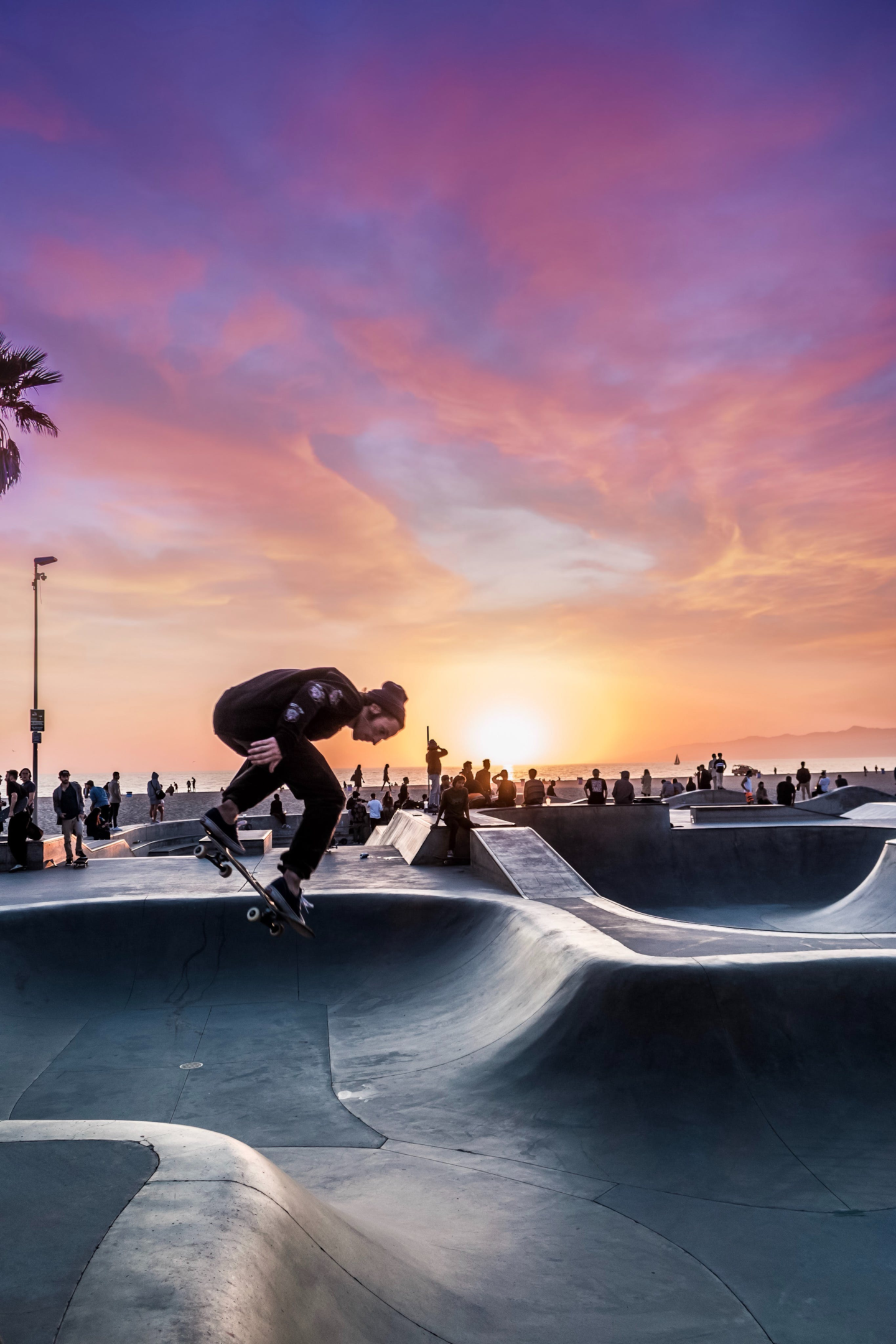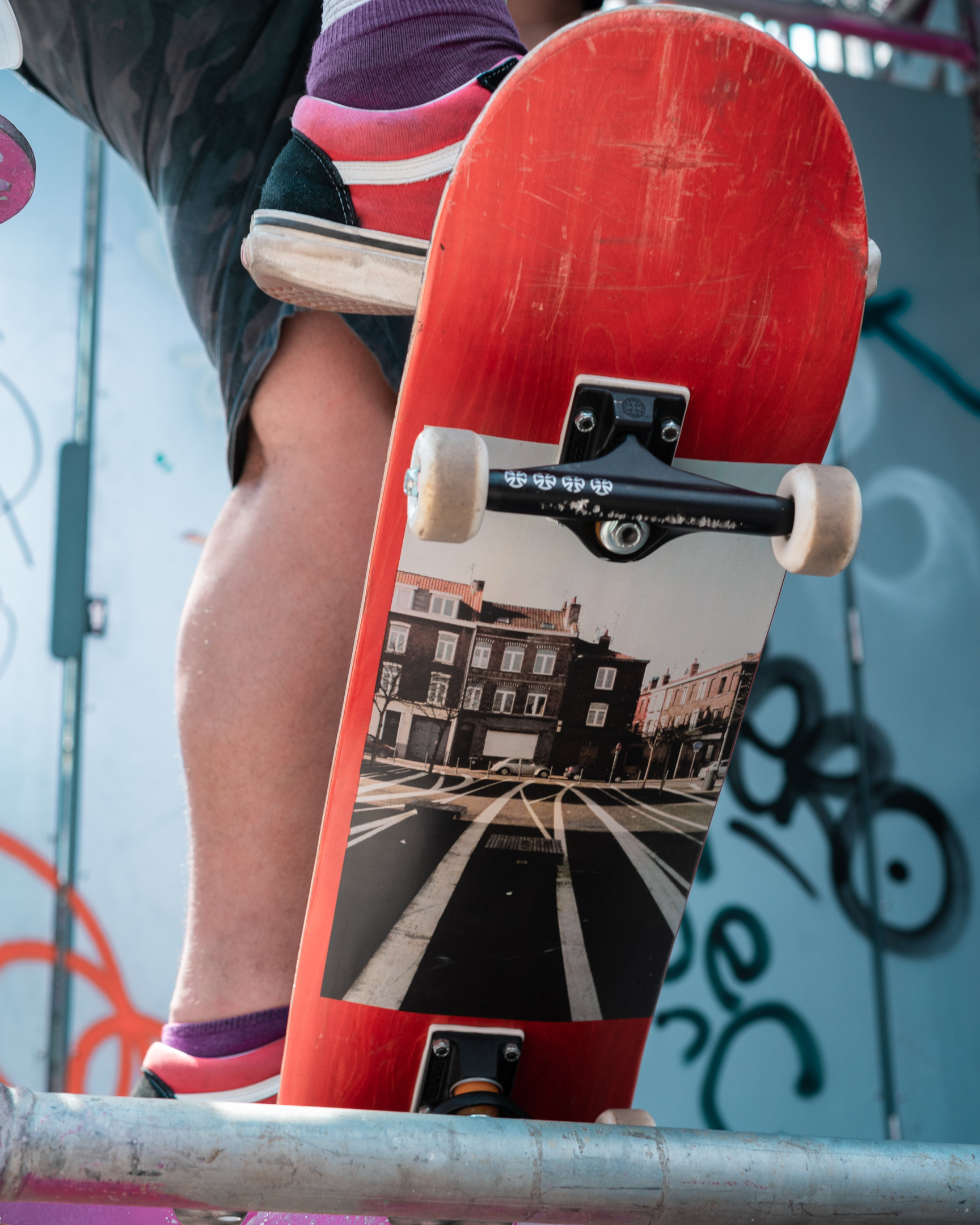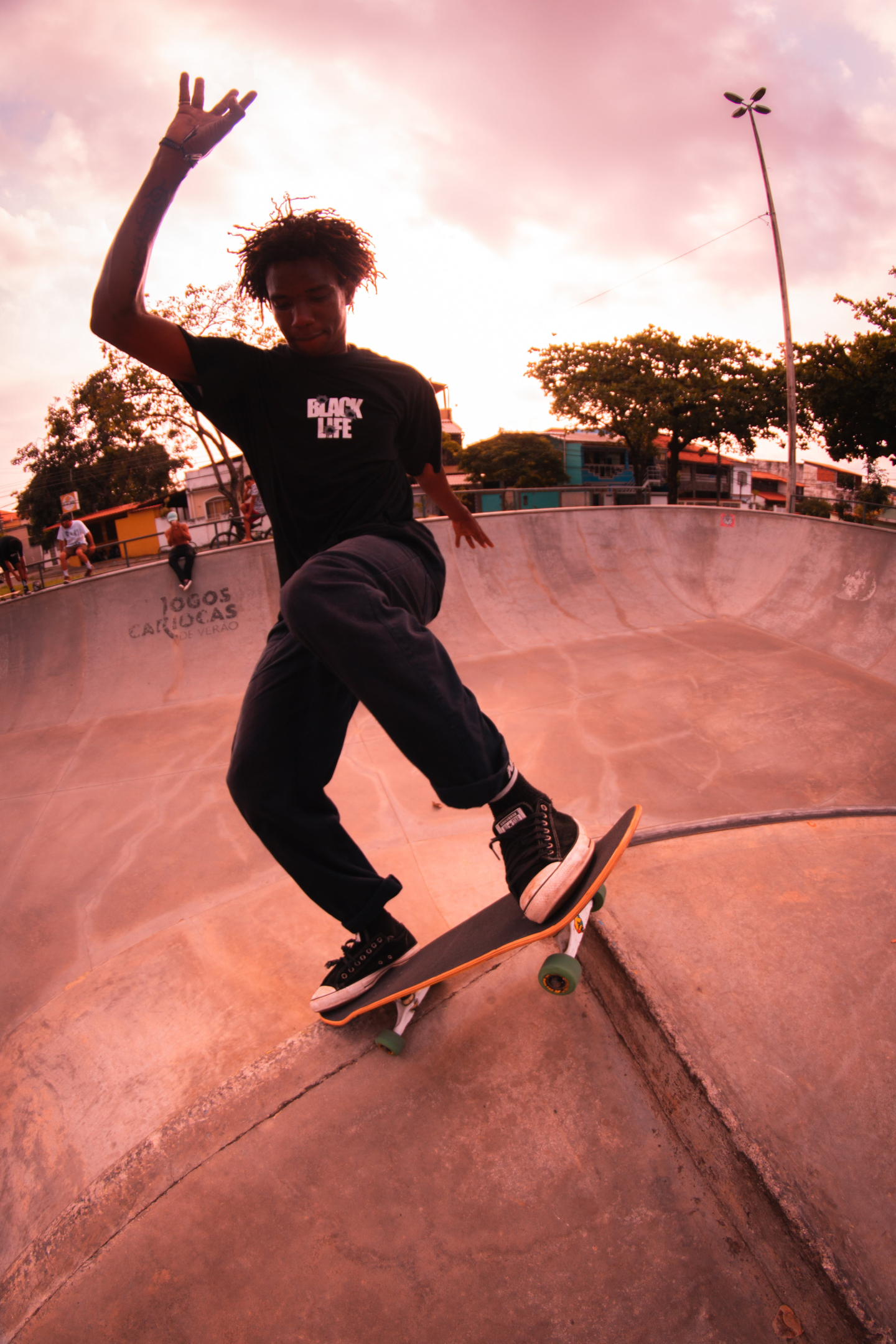Riding the Wave: The World of Skateboarding Culture
Dec 10, 2023
An Intro to Skate Culture
Skateboarding, a sport that began as a playful pastime for surfers waiting for the perfect wave, has transformed into a global cultural phenomenon. From the sun-drenched sidewalks of California to the bustling streets of cities worldwide, skateboarding has rolled its way into the hearts of millions, transcending its origins to become a symbol of freedom, creativity, and community. This article delves into the rich and dynamic world of skateboarding culture, exploring how a simple wooden board with wheels has carved out a legacy that extends far beyond the realm of sports.
Brief History of Skateboarding
Skateboarding, born from the surf culture of California in the late 1950s, has evolved from makeshift wooden boards and roller skate wheels to a global phenomenon. Initially a pastime for surfers during low waves, it quickly captivated a broader audience. By the 1970s, skateboarding had blossomed with the advent of urethane wheels, allowing for smoother rides and greater versatility. This innovation marked a turning point, leading to the first skate parks and a burgeoning of skating subculture that rapidly spread across the United States and beyond.

Evolution as a Global Phenomenon
Skateboarding culture, with its roots firmly planted in the rebellious spirit of youth, has transcended geographical boundaries to become a worldwide staple. This culture is characterized by a blend of athleticism, artistic expression, and a distinctive lifestyle. From the urban streets of New York to the bustling skate parks of Barcelona, the skateboarding world has become a unifying force, bringing together individuals from diverse backgrounds. Its influence extends to fashion, music, and language, creating a unique and vibrant subculture that resonates globally.
'Skater Culture' and its Significance
'Skater culture' is more than just an activity; it's a way of life. This culture embodies freedom, creativity, and a non-conformist attitude that challenges societal norms. Skaters, often seen as the avant-garde of urban culture, have contributed significantly to fashion, with their relaxed and functional attire influencing mainstream trends. Music genres like punk and hip-hop are deeply intertwined with skater culture, reflecting its raw and expressive nature. The significance of skater culture lies in its ability to adapt, evolve, and influence - making it an enduring symbol of youth culture and creative expression.

Skateboarding Lifestyle and Subculture
Exploration of Skateboarding as a Lifestyle, Transcending Mere Sports
Skateboarding transcends the boundaries of a conventional sport, embodying a lifestyle that champions individuality, creativity, and resilience. It's not just about mastering tricks or riding a board; it's about embracing a philosophy that values freedom, self-expression, and a sense of community. This lifestyle often involves a nomadic exploration of urban landscapes, many skaters turning city streets and skate parks into canvases for expression. Skateboarding becomes a medium through which skaters interact with their environment, interpret challenges, and express their identity.
Fashion, Music, Art, and Language Unique to the Skateboarding Subculture
The skateboarding subculture has carved out a distinctive niche in fashion, music, art, and language. Skate fashion is renowned for its practicality and edgy aesthetics, featuring loose-fitting clothes, durable sneakers, and bold graphic designs. Musically, skateboarding is synonymous with punk, rock, and hip-hop, genres that mirror its rebellious and free-spirited ethos. Art in skateboarding manifests through vibrant deck designs, street skating, graffiti, and photography, illustrating the community's creative pulse. The language of skateboarding, replete with unique terms and phrases, further cements its cultural identity, often bewildering to outsiders but second nature to those within the community.
Profiles of Influential Skateboarders Who Shaped the Skateboarding Culture
The skateboarding culture owes much of its evolution to influential skateboarders who have pushed the boundaries of what's possible on a board. Figures like Tony Hawk, Rodney Mullen, and Peggy Oki have become household names, each contributing uniquely to the sport and culture. Hawk revolutionized vert skateboarding and brought it to mainstream attention, while Mullen's technical prowess in street skateboarding redefined what could be done on flat ground. Peggy Oki, as part of the iconic Zephyr team, broke barriers for women in skateboarding. Their stories, along with countless others, paint a diverse and inspiring picture of how individual talent and passion can shape a global culture.

Community and Values in Skateboard Culture
The Role of Skate Parks and Social Aspects in Local Communities
Skate parks play a pivotal role in local communities, serving as more than just a venue for skateboarding. They are social hubs where individuals from varied backgrounds congregate, share experiences, and foster a sense of belonging. These parks become melting pots of culture, where friendships are forged, skills are honed, and a supportive community is built. The inclusive nature of these spaces allows for a diverse range of young people to participate, breaking down barriers and promoting mutual respect. Local skate parks often become landmarks, influencing the social fabric and youth culture of the area.
Skateboarding Values in Community Building, Outreach, and Diversity
Skateboarding culture is deeply rooted in values of inclusivity, resilience, and community support. These values manifest in community-building efforts to promote skateboarding everywhere, where skateboarders often engage in outreach programs, teaching and mentoring young enthusiasts. Skateboarding communities are known for their welcoming nature, embracing individuals regardless of their background, skill level, or socio-economic status. This culture of diversity and inclusion is integral to the ethos of skateboarding, fostering environments where everyone is encouraged to participate and express themselves freely.
Skateboarding in Media and its Impact on Spreading Skate Culture
The representation of skateboarding in media has played a crucial role in popularizing and spreading skate culture globally. From iconic films and documentaries to magazines and social media platforms, media has illuminated the world of skateboarding, showcasing its artistry, challenges, and community spirit. This exposure has demystified skateboarding, attracting new enthusiasts and changing public perceptions. The portrayal of skateboarding in various media forms has also helped in advocating for skate-friendly spaces, influencing fashion trends, and highlighting the talents within the skateboarding community, further embedding skate culture in mainstream consciousness.

Competitive Skateboarding and Industry Innovations
Overview of Skateboarding Competitions and Their Cultural Significance
Competitive skateboarding, ranging from local contests to international championships, has significantly contributed to the culture and popularity of the sport. These competitions showcase a high level of skill and creativity, pushing skateboarders to innovate and using new tricks to excel. Events like the X Games and Street League Skateboarding have become major platforms for athletes to display their talents, drawing global audiences and media attention. The cultural significance of these events extends beyond the competition; they celebrate the spirit of skateboarding, highlighting the camaraderie and respect among athletes, and inspiring the next generation of skateboarders.
The Role of the Skateboarding Industry in Technology and Gear Innovation
The skateboarding industry has been instrumental in advancing the sport through continuous technological and gear innovations. Companies specializing in skateboarding gear continually research and develop new materials and designs to enhance performance and safety. Innovations in skateboard decks, trucks, wheels, and bearings have allowed for greater precision, durability, and versatility. Protective gear like helmets and pads has also evolved, offering better protection without compromising mobility. These advancements not only improve the skateboarding experience but also influence the style and progression of the sport.
How Competition and Industry Shape the Skateboarding Lifestyle and Values
The interplay between competitive skateboarding and industry innovations has a profound impact on the skateboarding lifestyle and values. Competitions drive skateboarders to push the limits of what is possible, fostering a culture of excellence, resilience, and continuous improvement. The industry's response to these needs—by providing innovative equipment—enables skateboarders to achieve new heights and expand their creative boundaries. This symbiotic relationship reinforces values of innovation, community support, and the relentless pursuit of personal and collective growth within the skateboarding culture.
The Future and Legacy of Skateboarding Culture
Emerging Trends and the Growing Inclusivity in Skateboarding
The future of skateboarding is marked by a wave of emerging trends, notably the increasing inclusivity within the community. There is a growing recognition of diverse skateboarders, including women, LGBTQ+ individuals, and people from various ethnic and cultural backgrounds. This inclusivity is fostering a richer, more varied skate culture, bringing new perspectives and styles to the forefront. Additionally, technological advancements, such as the rise of electric skateboards and virtual skateboarding platforms, are shaping how skateboarding is experienced and expanding its reach to a broader audience.
Environmental Concerns and Sustainability in Skateboard Culture
Environmental sustainability has become a crucial aspect of skateboard culture, addressing concerns over the ecological impact of skateboarding gear and facilities. Manufacturers and community leaders are increasingly focusing on eco-friendly practices, such as using sustainable materials for decks and reducing waste in production processes. The culture itself is evolving to embrace eco-consciousness, with many skateboarders advocating for greener practices in their lifestyle, from transportation to the construction of skate parks. This shift reflects a growing awareness within the skateboarding community about their role in environmental stewardship.
The Enduring Legacy and Influence of Skate Culture on Broader Societal Trends
Skate culture has left an indelible mark on broader societal trends, influencing fashion, music, art, and attitudes towards urban spaces and youth culture. The ethos of skateboarding, characterized by creativity, resilience, and a do-it-yourself spirit, has permeated various aspects of popular culture. Skateboarding has also impacted how public spaces are perceived and utilized, leading to a reimagining of urban landscapes that are more inclusive of youth and alternative sports. As skateboarding continues to evolve, its legacy endures, continually reshaping societal norms and inspiring future generations to embrace its unique blend of sport, art, and lifestyle.
Embracing the Spirit of the Culture
As we reflect on the rich tapestry of skateboarding culture, it's evident that this is more than just street art or a sport; it's a vibrant lifestyle that has captivated hearts and minds across the globe. Skateboarding has evolved from its humble beginnings on the streets of California to become a symbol of creativity, freedom, and community. The inclusive nature of skateboarding, with its growing diversity and commitment to sustainability, is setting the stage for an even more dynamic and responsible future.
The enduring legacy of skate culture lies in its ability to constantly reinvent itself while staying true to its core values. It has influenced fashion, music, art, and even urban planning, embedding itself in the fabric of contemporary culture. The spirit of skateboarding, characterized by resilience, innovation, and a sense of belonging, resonates with people from all walks of life, inspiring them to challenge conventions and embrace their individuality.




































